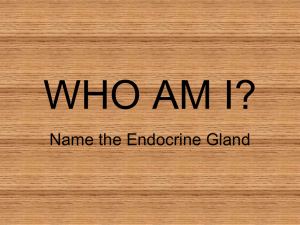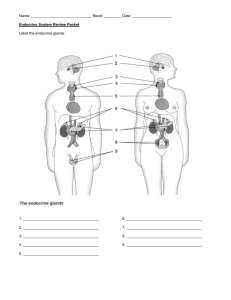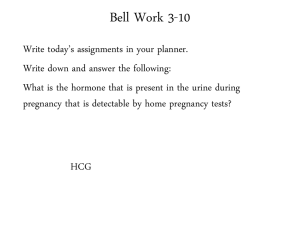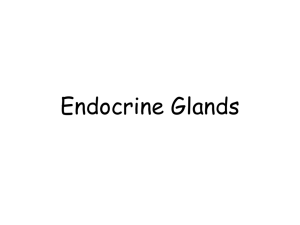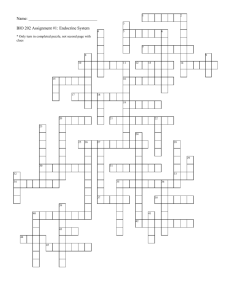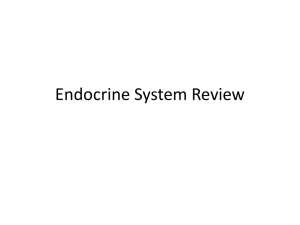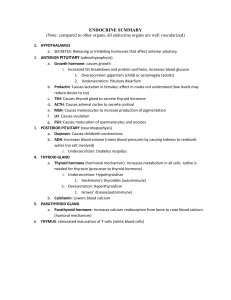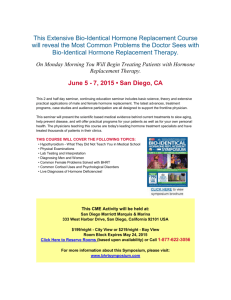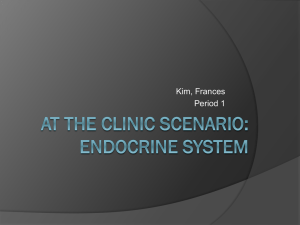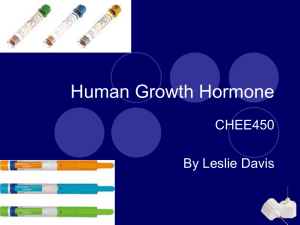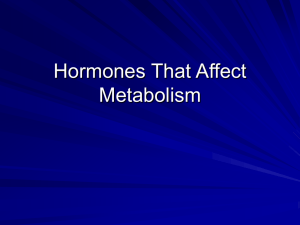Hormones
advertisement
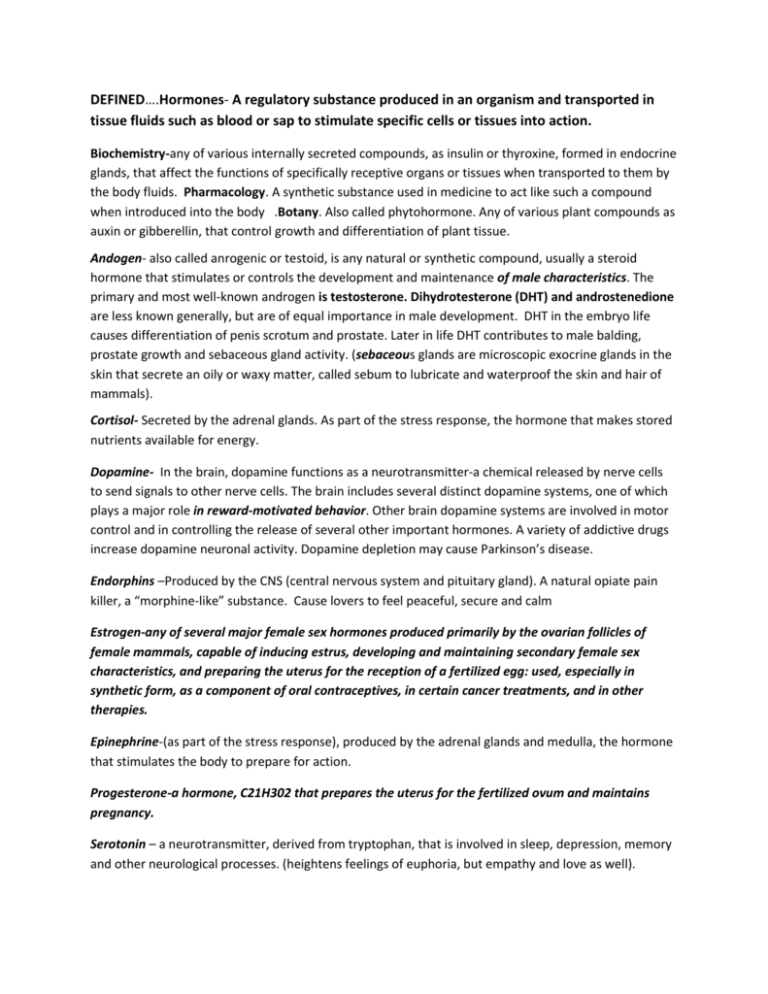
DEFINED….Hormones- A regulatory substance produced in an organism and transported in tissue fluids such as blood or sap to stimulate specific cells or tissues into action. Biochemistry-any of various internally secreted compounds, as insulin or thyroxine, formed in endocrine glands, that affect the functions of specifically receptive organs or tissues when transported to them by the body fluids. Pharmacology. A synthetic substance used in medicine to act like such a compound when introduced into the body .Botany. Also called phytohormone. Any of various plant compounds as auxin or gibberellin, that control growth and differentiation of plant tissue. Andogen- also called anrogenic or testoid, is any natural or synthetic compound, usually a steroid hormone that stimulates or controls the development and maintenance of male characteristics. The primary and most well-known androgen is testosterone. Dihydrotesterone (DHT) and androstenedione are less known generally, but are of equal importance in male development. DHT in the embryo life causes differentiation of penis scrotum and prostate. Later in life DHT contributes to male balding, prostate growth and sebaceous gland activity. (sebaceous glands are microscopic exocrine glands in the skin that secrete an oily or waxy matter, called sebum to lubricate and waterproof the skin and hair of mammals). Cortisol- Secreted by the adrenal glands. As part of the stress response, the hormone that makes stored nutrients available for energy. Dopamine- In the brain, dopamine functions as a neurotransmitter-a chemical released by nerve cells to send signals to other nerve cells. The brain includes several distinct dopamine systems, one of which plays a major role in reward-motivated behavior. Other brain dopamine systems are involved in motor control and in controlling the release of several other important hormones. A variety of addictive drugs increase dopamine neuronal activity. Dopamine depletion may cause Parkinson’s disease. Endorphins –Produced by the CNS (central nervous system and pituitary gland). A natural opiate pain killer, a “morphine-like” substance. Cause lovers to feel peaceful, secure and calm Estrogen-any of several major female sex hormones produced primarily by the ovarian follicles of female mammals, capable of inducing estrus, developing and maintaining secondary female sex characteristics, and preparing the uterus for the reception of a fertilized egg: used, especially in synthetic form, as a component of oral contraceptives, in certain cancer treatments, and in other therapies. Epinephrine-(as part of the stress response), produced by the adrenal glands and medulla, the hormone that stimulates the body to prepare for action. Progesterone-a hormone, C21H302 that prepares the uterus for the fertilized ovum and maintains pregnancy. Serotonin – a neurotransmitter, derived from tryptophan, that is involved in sleep, depression, memory and other neurological processes. (heightens feelings of euphoria, but empathy and love as well). Ghrelin- a hormone produced in the gastrointestinal tract that stimulates appetite, it tells the brain “feed me”. Growth hormones-HGH (human growth hormone)-released during stage 4 of sleep (known as somatropin or somatotropin, secreted by the anterior pituitary gland) (increases the synthesis of protein essential for growth) Insulin-stimulates cells to uptake (to take up) glucose from the bloodstream and use it for immediate energy. Conversion of glucose to glycogen for storage in the liver and muscles is also assisted by insulin. These actions lower the blood level of glucose, and in response, the pancreas stops recreating insulin until the next influx of glucose arrives. Leptin-a hormone that is thought to suppress appetite and increase metabolism Melatonin- a hormone that helps regulate biological rhythms and promotes sleep, while increasing alertness and shifting circadian rhythms to a later hour, making it harder to fall asleep. From the pineal gland. The pineal and hypothalamus of the brain are critical in regulating circadian rhythm. Oxytocin- called the cuddle hormone (newly one of the stress hormones), which stimulates sensations during lovemaking and elicits feeling of satisfaction and attachment (also known as the bonding hormone) Testosterone-the sex hormone, secreted by the testes, that stimulates the development of male sex organs, secondary sexual traits, and sperm. FSH (follicule stimulating hormone). Produced by the pituitary gland. It regulates the functions of both the ovaries and testes. Luteinising hormone-produced by the gonadotropic cells in the anterior pituitary gland. In women, LH helps regulate the menstrual cycle and egg production (ovulation). In men, it is crucial in regulating the function of the testes. PEA-phenylethylamine - According to researcher Helen Fisher, the feeling that the excitement and passion is gone from a relationship is due to a decrease of PEA level. The love smitten person’s endocrine system secretes chemical substances such as dopamine, norepinephrine and PEA, which are chemical cousins of amphetamines. (amphetamines are act as stimulants) Peptide YY- a hormone made in the small intestine. It helps to reduce appetite and limit food intake.
